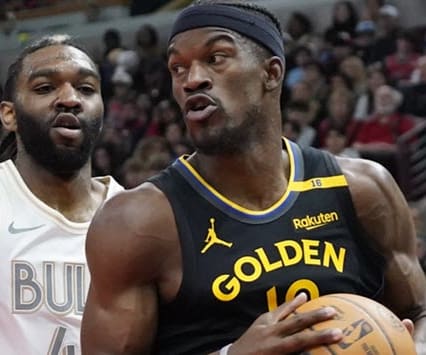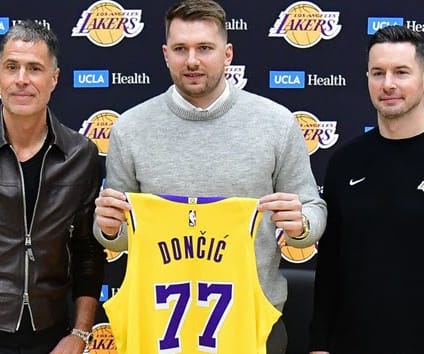2025 Stats
PTS
0.0
REB
0.0
AST
0.0
STL
0.0
BLK
0.0
ROS Projections

Headed to free agency
The Knicks will decline Tucker's $3.4 million team option for 2025-26 on Sunday, Ian Begley of SportsNet New York reports.
ANALYSIS
The veteran signed two 10-day contracts with New York in March before landing a one-year deal with the club in April. However, he totaled only four appearances during the 2024-25 campaign, including a four-minute cameo in the playoffs.
The veteran signed two 10-day contracts with New York in March before landing a one-year deal with the club in April. However, he totaled only four appearances during the 2024-25 campaign, including a four-minute cameo in the playoffs.
NBA Per Game Stats
Per Game
Total
Per 36
NBA Per Game Stats
Loading Per Game Stats...
2024 NBA Game Log
2024
2023
2022
2021
2020
2019
2018
2017
2016
2025 NBA Per Game Split Stats
Schedule
By Month
Starting/Off Bench
Days Rest
Vs Opp
By Result
2025 NBA Per Game Split Stats
Loading Split Stats...
Advanced Stats
Loading Advanced Stats...
Stat Review
2024
2023
2022
2021
2020
2019
2018
2017
2016
How does P.J. Tucker compare to other players?
This section compares his stats with all players from the previous three seasons (minimum 200 minutes played)*. The bar represents the player's percentile rank. For example, if the bar is halfway across, then the player falls into the 50th percentile for that stat and it would be considered average.
True Shooting %
64.3%
Effective Field Goal %
64.3%
3-Point Attempt Rate
85.7%
Free Throw Rate
0.0%
Offensive Rebound %
8.0%
Defensive Rebound %
7.9%
Total Rebound %
7.9%
Assist %
0.0%
Steal %
0.8%
Block %
1.6%
Turnover %
12.5%
Usage %
6.0%
Fantasy Points Per Game
7.9
Fantasy Points Per Minute
0.4
NBA Historical Fantasy Stats
Historical ADP
Loading Historical ADP...
Past Fantasy Outlooks
2023
2022
2021
2020
2019
2018
2017
2016
2015
2014
2013
2012
2006
Despite starting for the majority of the 2022-23 season, Tucker found new ways to do absolutely nothing, ending as the 314th-ranked player in standard nine-category formats. With averages of just 3.5 points per game to go with 3.9 rebounds and 0.5 steals, he really is the epitome of a player whose real-life value far outweighs their fantasy value. With that said, even his real-life value is something that is steeply declining. He is likely to play a meaningful role once again this season, but given what we have seen in recent times, managers can avert their gaze, even in deeper formats.
More Fantasy News

Limited playing time in 2024-25
Tucker finished the 2024-25 campaign with averages of 3.0 points and 2.7 rebounds across 19.3 minutes per game in three regular-season outings (one start).
ANALYSIS
Subscribe now to instantly reveal our take on this news.
Subscribe now to instantly reveal our take on this news.

Moving back to bench role
Tucker is not in the starting lineup for Game 1 against the Pistons on Saturday, Kristian Winfield of the New York Daily News reports.
ANALYSIS
Subscribe now to instantly reveal our take on this news.
Subscribe now to instantly reveal our take on this news.

Getting spot start Sunday
Tucker will start Sunday's game against the Nets, James L. Edwards III of The Athletic reports.
ANALYSIS
Subscribe now to instantly reveal our take on this news.
Subscribe now to instantly reveal our take on this news.

Sees 27 minutes in loss
Tucker provided three points (1-2 FG, 1-2 3Pt) and six rebounds in 27 minutes during Thursday's 115-106 loss to Detroit.
ANALYSIS
Subscribe now to instantly reveal our take on this news.
Subscribe now to instantly reveal our take on this news.

Gets two-year deal
Tucker agreed to a two-year deal with the Knicks on Monday, Shams Charania of ESPN reports.
ANALYSIS
Subscribe now to instantly reveal our take on this news.
Subscribe now to instantly reveal our take on this news.
Latest Fantasy Rumors

Could return to New York
The Knicks are almost certain to decline their $3.5 million option on Tucker, but that doesn't mean he won't re-sign with the club, according to Stefan Bondy of The New York Post.
ANALYSIS
Tucker barely played for the Knicks after being acquired in March. Still, the organization considers him an excellent locker-room leader, and his experience should be vital for a team that looks like a perennial playoff contender in the years to come. Tucker could return to the Knicks on a veteran-minimum deal if the team declines the option.
Tucker barely played for the Knicks after being acquired in March. Still, the organization considers him an excellent locker-room leader, and his experience should be vital for a team that looks like a perennial playoff contender in the years to come. Tucker could return to the Knicks on a veteran-minimum deal if the team declines the option.








